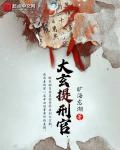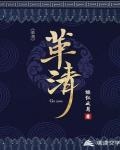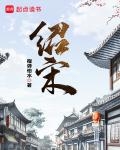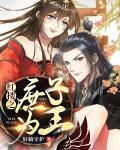Volume 1: Mission in Danger Chapter 40: On Business
Cai Qinghua looked at Zhou Yijin, and Zhou Yijin smiled and said, "Well, I said that the Third Young Master would not agree to it."
Cai Qinghua shook his head, seemingly unable to understand.
Zhou Yijin said: "Others might be flattered to be able to join this chess game, but we, the Third Young Master, have never been willing to be someone else's chess piece, no matter who is playing the chess."
Cai Qinghua sneered: "If you don't want to be a chess piece, then you want to be a chess player? But whether you can be a chess player or not, you have to first look at your identity and position! In the current situation, it is really stupid to say that you don't want to be a chess piece."
"I dare not, I dare not." Wu Chengjian said, " Who do you think I am? How dare I play chess in front of the Grand Duke and He Zhongtang? I dare not, I dare not. But I think that if the Grand Duke is really a noble scholar and a pillar of the country, he should not treat our Wu family like this."
"What's wrong with your Wu family?" Cai Qinghua said, "The Grand Lord is willing to entrust such an important matter to your Wu family, which shows that he values it very much. Are you still not satisfied?"
"I dare not, I dare not!" Wu Chengjian said, "The Wu family is engaged in business. Merchants are considered a lowly profession in the eyes of scholars, but Master Cai, you know that among merchants, there are also great men of the country."
"National Scholar?" Cai Qinghua sneered, "Huang Shangu said: A scholar whose talent and virtue cover the whole country is called a national scholar. Merchants are at the bottom of the scholars, farmers and workers, and are not even scholars. How dare they be called national scholars?"
Wu Chengjian asked, "Whether a person is a scholar or not, is it the secular world that has the final say, or the saints and sages?"
Cai Qinghua said: "Of course, the sages have the final say."
Wu Chengjian said: "Only those who pass the imperial examination and enter officialdom can be called scholars. This is actually a common saying after the Zhao and Song dynasties. But the ancient sages did not distinguish in this way. Confucius said: Those who behave with shame, are sent to the four directions, and do not disgrace the king's orders, can be called scholars. In other words, a person has a moral bottom line and can distinguish right from wrong in his actions. On this basis, he can go out to do things and can not disgrace the king's orders. He can be called a scholar. It can be seen that the sages distinguish between national scholars and villains, not by identity and occupation, but by his behavior, morality and integrity. On the contrary, what do the sages say about those who are incompetent even though they are officials? 'Today's politicians are incompetent people, what are they worth!'"
Cai Qinghua laughed, thinking that the Third Master Yihe, who was called a prodigal by everyone in Guangzhou, turned out to be educated, so he said, "Okay, you are right. But are there such people among you businessmen? Haven't you heard the sage say: If you are rich, you are not kind; if you are kind, you are not rich. It is what he said about you, the unscrupulous businessmen who chase after petty profits all day long."
Wu Chengjian said: "But the sage also said that the realm of a gentleman is to be happy in poverty and to be courteous in wealth. If we are rich and courteous, then we are not only scholars, but also gentlemen, not profiteers."
Cai Qinghua said: "Do you dare to say that your Wu family has done it?"
Wu Chengjian said: "I dare not say that we have achieved it, but we have always been pursuing this. A family of people who are committed to this and have been actively practicing it for more than 20 years, are n't scholars?"
"Oh?" Cai Qinghua said, "I'd like to hear more details."
Zhou Yijin glanced at Cai Qinghua casually and knew that from the words "I would like to hear the details", the master would be trapped by the Third Young Master.
Then Wu Chengjian said, "Everyone in the world knows that our Thirteen Hongs are different from ordinary merchants. In the tenth year of Qianlong's reign, the Holy Emperor selected five of the most financially powerful merchants from the Guangdong merchant houses as guarantors. The selected guarantors must insure the trade and taxation of foreign merchant ships to Guangdong, underwrite the import of foreign goods, undertake the export of Chinese goods, and even the warehouses, housing, and labor employment of foreign merchants are all the responsibility of the guarantors. In addition, if foreigners have matters to negotiate and report to the government, they cannot contact the government directly, and must be forwarded by the guarantors. The guarantors are also responsible for restraining the illegal behavior of foreign merchants. It can be seen that the guarantors of our Thirteen Hongs were not ordinary merchants from the beginning, but imperial merchants with substance but no name, who were following the orders of the emperor and gathering wealth for the country."
"It is true," Cai Qinghua said, "but after I arrived in Guangzhou, I saw you, the merchants, using the imperial edict to monopolize the Sino-foreign trade, making a fortune for yourselves and leading an extravagant life. How dare you claim to be following the emperor's orders and amassing wealth for the country?"
"Whether to live frugally or extravagantly is a minor matter. Guan Zhong's life was not frugally either, but Confucius still called him benevolent." Wu Chengjian said, "Of course, Master Cai is right. Among our merchants, there are three levels. The lowest-level merchants do use the imperial edict to monopolize and make profits. They do whatever it takes to make money. They sell both real and fake goods, and dare to do good and bad things. They even dare to do things that violate the law and harm the country as long as there is profit. They are eager to do things that are servile and fawning. They are servile for money. Such people are what the world calls profiteers. It is this group of people who have ruined the reputation of our merchants.
"As for the second type, they do business with conscience, bottom line, genuine goods and fair prices, and fair trade. Such businessmen can be called conscientious businessmen. If they also emphasize loyalty, they are people like Lu Guanhuan, who are middle-class businessmen."
Cai Qinghua felt that he had guessed Wu Chengjian's sophistry and asked with a smile, "What about the top grade?"
Wu Chengjian said: "The best merchants establish their character through goods and their morality through business. They not only do business, but also make goods. Not only do they make goods, but they also establish their morality..."
Cai Qinghua laughed when he heard this. "The ancients said that there are three immortals in the world: the most important is to establish virtue, the second is to establish merit, and the third is to establish words. No matter how knowledgeable the scholars in the world are, they only dare to seek to establish words. Even a great scholar like the Grand Duke dare not say that he has established virtue. And you tell me, among mere businessmen, there are people who dare to claim to have established virtue?"
Wu Chengjian said, "I dare not claim to be the most virtuous. But among the merchants , there are indeed one or two who have made meritorious deeds in silence. Master Cai, please listen to me in detail. Most of the merchants in the Thirteen Hongs only monopolized the Sino-foreign trade with their licenses, and received goods from the domestic market and sold them to foreigners. They made high profits by taking in low prices with their left hand and selling them with their right hand. For example, Pan Yiliang, Ma Yang and others in the following five companies are all like this. If these companies go bankrupt, it is just the decline of one family after another, and at most dozens of suppliers will go bankrupt. Another merchant will take their license and continue their business. It will not have much impact on the country and the people. Maybe in the eyes of the Grand Lord and Master Cai, our group of merchants are all such people. So they chose our Wu family to be the pawns in the river. Maybe in the eyes of the Grand Lord, our Wu family should be flattered."
Cai Qinghua pondered, not making any comment. He had already vaguely heard what Wu Chengjian was referring to. After Lu Guanhuan came to surrender, he had a deeper understanding of the situation of each of the Thirteen Hongs. He knew that although they were all protected merchants, each merchant was different.
As expected, Wu Chengjian continued, "Among the Bao merchants, there are second-class people who have gradually deepened their foundations and have established a relatively complex cargo flow system. Their trade has penetrated into the southern provinces, such as Cai and Xie among the 'Top Four' and my future father-in-law Ye Dalin. If these businesses suddenly go bankrupt and no one with the same qualifications takes over their legacy, the impact will be much more far-reaching, and the trade flows of several prefectures and counties may be affected. Therefore, if these businesses are involved, we must be cautious."
Cai Qinghua said: "From what you said, could it be that the three families of Pan, Lu, and Wu that you didn't mention just now are different from Cai, Xie, and Ye?"
"Of course it's different!" Wu Chengjian said, "After making huge profits at sea, our Pan and Wu families invested money in upstream industries to improve goods. The Pan family deals in silk, and my family deals in tea. Investing money in the improvement of silk and tea has high risks, large investments, long cycles, and the slowest results. This is why my father started early, but after two generations of efforts, his ranking is still below Cai, Xie, and Lu. Because it is so thankless, most of the merchants are unwilling to do this hard work. Only Old Lu has a far-sighted vision and has finally made efforts in porcelain in recent years.
"However, getting rich by relying on policy monopoly is doomed to rise and fall suddenly. Once the situation changes, changing the license is just a matter of a letter from the Ministry of Internal Affairs. For example, the silk business of Yuehai Jinao involves more than a thousand workshops and tens of millions of looms. Another example is the tea business of my father and brother. There are more than a hundred tea mountains and tea factories involved. After the silk is made and the tea is harvested, there are countless skilled weavers and tea makers involved in processing and making the silk. And there are countless coolies and heroes involved in transporting the silk by land and sea. There are no less than 10,000 people who rely on these two lines to survive, and no less than a hundred families who have become well-off because of them. And there are probably no less than hundreds of thousands of people who have made a profit from the whole business."
After hearing this, Cai Qinghua finally understood something.
Wu Chengjian wanted to tell himself: The difference between the Pan and Wu families and other families in the Thirteen Hongs is that their capital has entered the industrial field. If something happens to them, those who are directly affected will not only be themselves and their cooperating merchants, but also many grassroots people including mulberry farmers, weavers, tea farmers, and transport coolies.
Officials don’t really care about the lives of merchants, but they are worried about the livelihoods of the lower classes. This is not out of compassion, but out of fear - because the merchant class is weak, while the lower classes dare to rebel if they have no food to eat.
Of the three types of businessmen listed by Wu Chengjian, the first type can be left alone when he dies, and the license can be transferred to someone else; for the second type, you need to arrange for someone to inherit his business; and the third type of businessmen involves a wider range of people, so when dealing with them, you must be more cautious than with the first two types.
Then Wu Chengjian continued, "At the last checkpoint of the Thirteen Factories, every time Mr. Pan and my father fought for a little more profit from the foreign merchants, they would give a little more profit to the country. Mr. Cai, you may look down on this little profit, but this little profit can benefit hundreds of families and tens of thousands of people. The two old men were always worried about this. They fought for more profits in front of the foreign merchants, and turned around to the silk factories and tea plants to give more profits. They often said to us: 'We can give an extra ten taels of silver on this side. Although the silk and tea heads can't give all the ten taels of silver to the weavers and tea farmers, they can give a little or two taels of profit in the end. For these poor families, their lives can also be improved.' Mr. Cai, with such a good heart and doing such good deeds, what else can it be but a moral career?"
Cai Qinghua chuckled twice and said, "If the Pan and Wu families are really as you said, they can be considered good partners among merchants. But you just called yourself a national scholar, which is a bit self-aggrandizing."
Wu Chengjian did not argue, but picked up the glass bottle of wine and said, "This bottle of wine is certainly valuable, but the glass bottle that contains the wine is also expensive. Master Cai, how much do you think this bottle is worth in my Qing Dynasty?"
Cai Qinghua said: "About a few dozen gold coins."
This is an ancient word that scholars like to use. "Dozens of gold" means dozens of taels of silver.
Wu Chengjian said, "The country is based on agriculture. The price of rice in the world is about one and a half to two and a half taels of silver per stone. A medium-sized rice field produces two stones per mu, and the rice is 70% of the yield. A farmer who works hard on one mu of land earns only two or three taels of silver in a year. There are many people in the country but little land. A man only cultivates three or more mu, so his annual income is less than ten taels of silver - this does not include the total output of various exploitations. And a farmer needs to work in the fields for five or six years to make a wine bottle like this. So, does Mr. Cai know how this glass wine bottle is made?"
Although Cai Qinghua was knowledgeable, he happened to be unaware of this matter. However, he did not think it was anything to worry about, so he did not answer.
"It's sand!" Wu Chengjian said, "This glass is made of sand. A few skilled craftsmen in Taixi can probably blow out dozens of wine bottles a day. If they blow out dozens of wine bottles a day, they can earn the annual harvest of all the farmers in a small village."
"So what?" Cai Qinghua said, "According to what said, the ceramics produced by our Qing Dynasty are also made of sand. Silk is nothing but the spit of silkworms. Tea is nothing but the leaves of tea trees. But these sand, insect saliva, and leaves earn tens of millions of taels of silver for our Qing Dynasty every year."
He thought he had refuted Wu Chengjian's argument, but Wu Chengjian said, "Why do they use silver to buy these porcelain, silk, and tea? Why do we spend a lot of money to buy glass?"
Cai Qinghua smiled and said, "That's easy. They don't know how to make ceramics or silk, and they don't have tea trees, and we don't know how to make glass. The world has always been connected, sharing what we have and what we don't have. This has been the case since ancient times."
Wu Chengjian asked, "What if they have learned to make ceramics, weave silk, and grow tea trees, but we haven't learned to make glass yet?"
Cai Qinghua was stunned.
"Because they don't have our technology yet!" Wu Chengjian said, "As long as the soil is suitable, ceramics can be made. Apart from other things, Japan and Korea can make them, but they are not as good as us. It can be seen that it is not necessarily China that can make them. Similarly, mulberry trees can be planted. As long as we get silkworm seeds, why would people in Europe buy silk? As for tea trees, Master Cai, do you know that foreigners are already trying to steal tea seeds and tea seedlings. And what about our Qing Dynasty? So many officials are just sitting there doing nothing, and their domestic power struggles are more powerful than each other, but seeing that the price of glass is high, which official has ever thought of improving the manufacturing of glass? Not to mention that in recent years, the West has seen the emergence of a national weapon that is more important than glass."
Cai Qinghua didn't care about the "national weapon" he had never heard of. After all, his vision was limited. But when he heard that the foreigners wanted to steal silkworms to grow tea seeds, his face changed slightly. This matter could be a big deal or a small deal, so he said, "Is it true that the foreigners are planning to steal silkworms to grow tea seedlings? If it is true, this matter must be reported immediately!"






